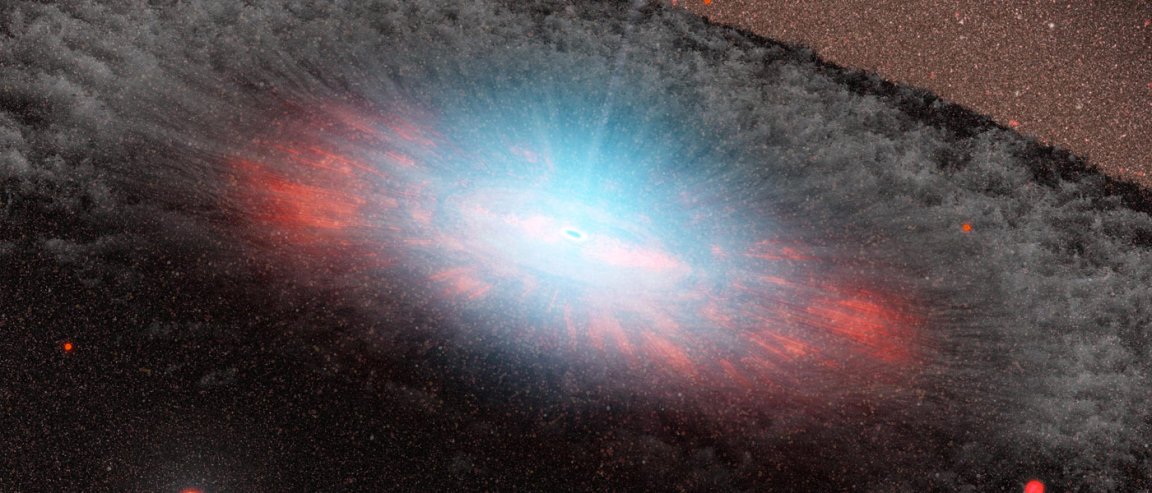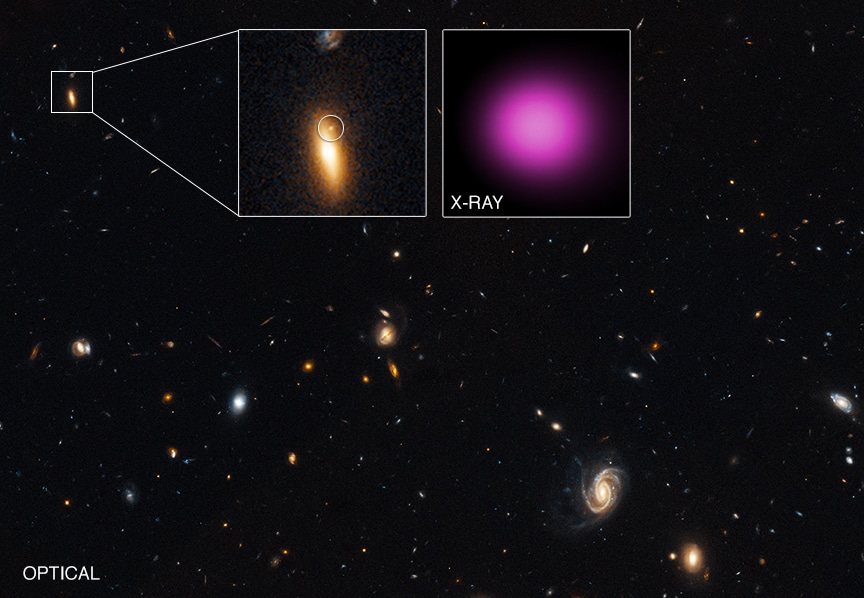
Black hole behavior
Not much is known about black holes. The little that we think we know is constantly being challenged by discoveries of unusual black hole behavior — like the case of XJ1417+52, a supermassive black hole we’ve been observing for a decade now.
A supermassive black hole is believed to sit in the middle of every galaxy in the universe. XJ1417+52, about 100,000 times more massive than our Sun, is just one example. However, data from images taken by NASA’s Chandra X-ray Observatory and the ESA’s XMM-Newton X-ray observatory show that this super huge black hole has been knocked out if its seat in the middle of its galaxy, SDSS J141711.07+522540.8.

Physicist Dacheng Lin and his team spotted the rogue black hole. They believe it began moving about freely as a result of its galaxy colliding with another galaxy. During the collision, the Sun from the other galaxy must have gotten too close to the black hole, dislodging it from its place. The sun, of course, got shredded to bits — which explains why XJ1417+52 appeared to be so bright when it was first spotted between 2000 and 2002.
This clash produced a gaseous debris that generated the X-ray outburst picked up by Chandra and the XMM-Newton.
No need to worry, for now
There are several rogue black holes believed to exist in the universe. Some form clusters, while others wander about, occasionally bumping into each other on the fringes of the Milky Way or some other galaxy. Still some defy theories about how black holes supposedly were formed.
While these bizarre objects are massive, the universe itself is even more so. Yes, it is constantly moving and galaxies are constantly clashing — something that’s expected to happen to the Milky Way some 5 billion years from now — but it is more of a probability than possibility.
The chances, however, of a rouge black hole or a star or any such object from another galaxy far, far away is not that big. The Earth is not due for a collision with an event horizon any time soon.